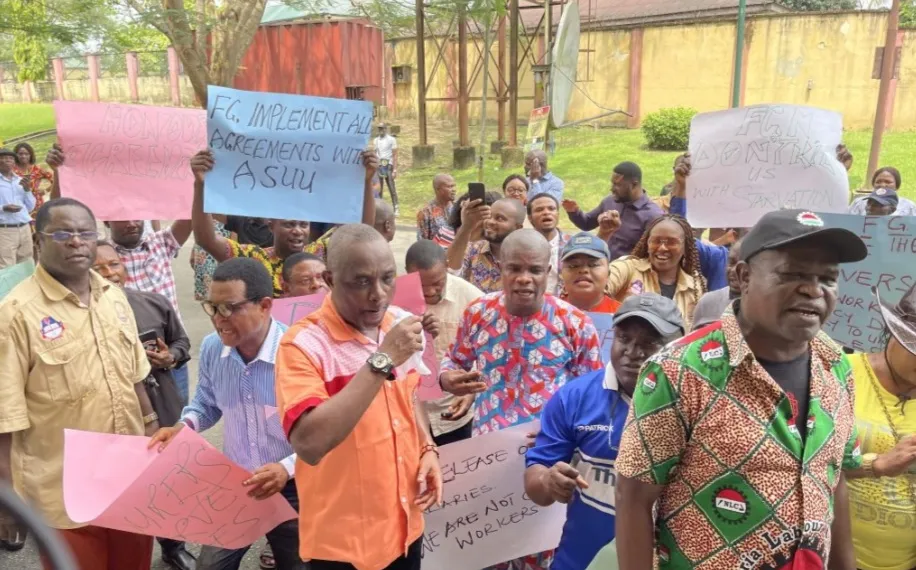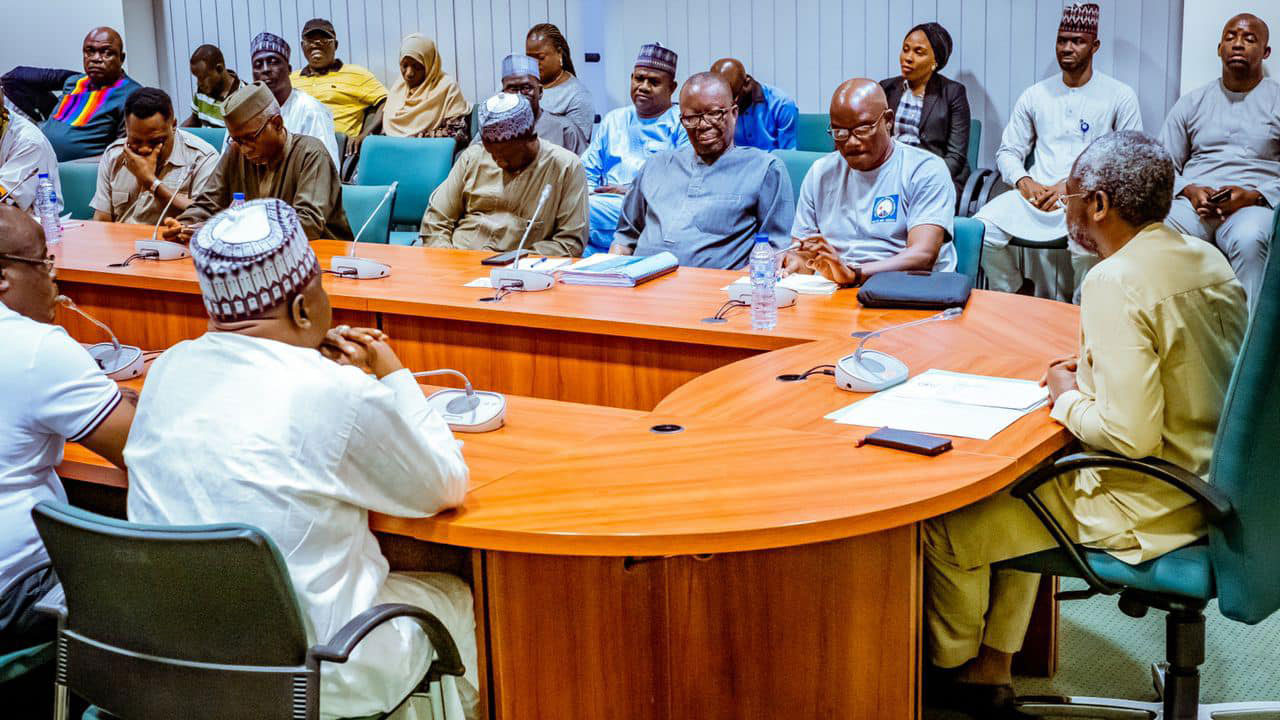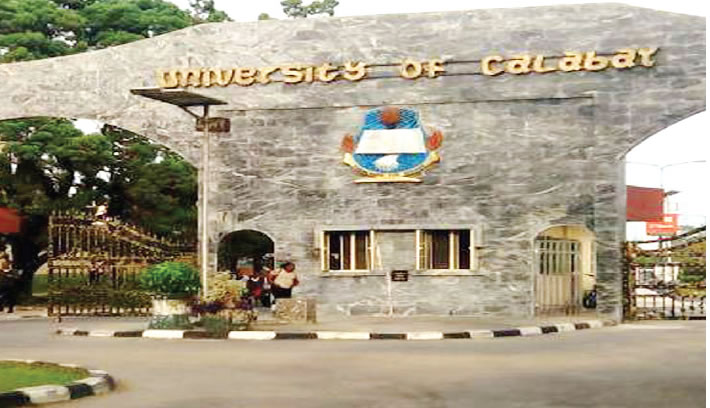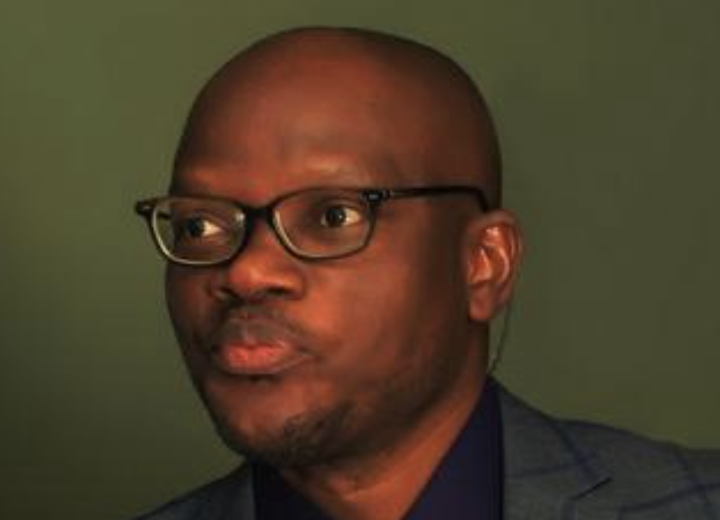The President of the Academic Staff Union of Universities (ASUU), Chris Piwuna, a professor, has offered insight into the current situation on Nigerian university campuses, accusing the Nigerian government of deliberately impoverishing lecturers to kill public education.
Speaking in an exclusive interview with DevReporting, Mr Piwuna, a professor of medicine at the University of Jos, Plateau State, highlighted the frustrations of ASUU members over the unimplemented 2009 ASUU-Federal Government agreement. He spoke on other issues of national interest, including the union’s withdrawal from INEC activities, the issue of breakaway bodies like CONUA, among others.
He added that the patience of ASUU members has “run out” as lecturers struggle to make ends meet with stagnant remuneration. The union leader insisted that without urgent action addressing lecturers’ welfare, the Nigerian public university system risks collapse.
Read full interview with DevReporting team below:
DR: It’s been 16 years since the 2009 ASUU-Federal Government agreement was signed, yet it remains largely unimplemented despite multiple renegotiation committees and promises by successive administrations. What do you believe is fundamentally broken in the relationship between ASUU and the Federal Government that has continued to breed distrust and failed agreements?
Mr Piwuna: The agreement was signed in 2009, and in that document were three tables that were supposed to be implemented progressively as it was renegotiated; however, this has not been done. The remuneration we have, which is peculiar to academics in Nigeria, has not been reviewed since 2009. What we continue to get are wage awards. Whenever they say there’s a new minimum wage, they give us N40,000. Even the 25-35 per cent wage award, we are owed for about 12 months now. Now, our members across universities are growing restless; it has become unbearable for them to go to work, to feed their families, to care for their children, to pay school fees, and to do many other things. It has reached the point where we believe the honeymoon with the government is over. I repeat, the honeymoon with the government over renegotiation is over.

It is now left for the government to decide the terms of the marriage. If they want a peaceful marriage, it is in their hands. If they want a tumultuous time, it is also in their hands, but I can assure you that our patience with the government has run out. When this government came, there was a referendum within our branches, and over 70 per cent voted to proceed with action. But our union decided that this government had just been sworn in and that we should give them time to settle in. We gave them time, we worked with the former Minister of Education, Tahir Mamman, but nothing came out of it. We are working with the current minister, Dr Tunji Alausa, and nothing is coming out of it. So, we believe that the government is not serious about the renegotiated document that is before them.
DR: Let’s go into the specifics of the agreement. What form of review is ASUU seeking on remuneration, recruitment, funding, among others?
Piwuna: This issue of remuneration for university lecturers is one that we are not willing to let go, even if there’s a gun to our heads. Unless the government acts on it immediately we are not going to listen to any issue of supplementary budget. Now the year is running out, by October or so, they will say the work on next year’s budget has been completed. We are not going to accept that from the government at all. Nobody should come to us with any excuses of budgetary provisions.
READ ALSO: EXCLUSIVE: ASUU president blows hot, says honeymoon with Tinubu-led govt over
DR: What percentage of increase is ASUU demanding?
Piwuna: I can’t discuss the specifics of our salaries here. But I think we have emphasised the issue of professors’ salaries too much. Let’s take what graduate assistants get. They are also members of our union; how much do they take home? They take home between N130,000 and N150,000. How much is that in dollars? Take the case of our retired professors, and even vice-chancellors who have retired from the system. What are they taking home in the form of their pension? We signed the 2009 agreement believing that our professors would retire with their full pay, but that has not been fully implemented to this day. So, our retired comrades who struggled to get the 2009 agreement for us today are in penury. Most of them who are retired can’t afford medical checkups, and fuelling their cars is now a problem. And what about those who are in the system? When this government took over, a dollar to naira was N450, but that has gone up to N1500 to N1600. So, you can do the mathematics yourself. How much they have lost from the so-called $500 that they were earning. Where in the world do professors earn less than $300, except in Nigeria? Where in the world do assistant lecturers earn N150,000?
DR: Are you saying the increment in the new minimum wage does not affect the lecturers?
Piwuna: Well, the graduate assistants were earning about N90,000 or N95,000 before the new minimum wage, add N40,000 to it, what are they getting? The senior lecturer could be earning a little over N200,000. Now that they have added N40,000, a senior lecturer is earning N250,000 or thereabouts, and they are owing from their cooperative societies. Now lecturers have to go and beg the management of their children’s schools to allow their kids to stay until salaries are paid. Is that the kind of life we want to live as lecturers? And the government is just carrying on as if they have all the time in the world to do what is right? We don’t have the time, and I am telling you, if the government hesitates or continues to hesitate in implementing this 2009 renegotiated document, there will be pain.
Well, I think this is where the government wants us to be. They want to continue to pauperise us as lecturers. They have no regard for education. They have no regard for the lecturers in the system. So, they continue to make those who want to come into the university system see it as a death trap. They are being systematic about it. The more they impoverish us, the less likely people who have the capacity and what it takes to be lecturers will want to come into the system. It’s systematic.
DR: So what is the status of the agreement now?
Piwuna: The fourth committee, headed by the former Permanent Secretary, Alhaji Yayale Ahmed, submitted its report in December 2024. Except for Babalakin, all the other chairmen and members of the committees are Nigerians with high integrity. We emphasise the exception because we never agreed with him (Babalakin). But rather than implementing the report, the government keeps telling us that it is setting up one committee after another. Look, they can set committees from now till thy kingdom come, we don’t care, as long as there is no action, there is no tangible result. We believe that the government is not serious about the conditions of service of our members, it is not serious about academic freedom, autonomy, and proper funding of our universities.
DR: The popular opinion is that the universities cannot be agitating for full autonomy while still expecting the government to be solely responsible for their funding. Is this position wrong?
Mr Piwuna: When you talk about academic freedom and autonomy of universities, the first thing that comes to mind for those in government is finance. They feel that autonomy is about money, and they say, “We are giving you money, and we need to have control.” But autonomy goes well beyond that. Universities have a culture of administration through committees. Our autonomy will clearly define how these committees work. While they are thinking of the money, we need autonomy on how to govern the university, relying on that universal culture that guarantees transparency and accountability. Without that clearly spelt out, we will give room for abuse and autocratic leadership, and we are not willing to let that happen.
DR: What do you say about education funding generally in Nigeria?
Mr Piwuna: All budgetary allocations have progressively declined. The highest we have had in terms of budgetary allocations in the last 26 years of democracy was about 11.7 per cent, and that was during the tenure of former President Umaru Yar’Adua. We have now consistently moved from that point to between 5 to 8 per cent. That was why we came up with a sustainable funding suggestion, which was shared with the last administration. But that has not been addressed as well. So we think this government is not interested in solving the problems of these universities. The government is not interested in addressing the issue of remuneration of our members. Going forward, I say this without mincing words that the ‘honeymoon is over’.
READ ALSO: EXCLUSIVE: How ASUU delegates voted to elect new leaders
DR: You claimed the Nigerian government doesn’t value education, yet the president said his administration would take people out of poverty. Is that possible without investment in education?
Piwuna: It is in their party’s manifesto that Nigeria will be among the top 20 competitive economies in the world by 2050. And I said, “Really?” They think they will get there with what they are doing with the education sector. And I am not just specific about the Tinubu government. Over the years, what each successive government has been doing is to take us backwards. Let me give you some statistics, in all our over 190 public universities in Nigeria, there is none that is among the top 1,000 in the world. The University of Ibadan is the 1,163rd; the University of Nigeria, Nsukka (UNN) is ranked 1,784; the University of Lagos is ranked 1,875th; Ahmadu Bello University (ABU) is ranked 1,881. Even in Africa here, the first university in Nigeria is the 13th in Africa, and that is UI. UNILAG is the 23rd, UNN is the 25th, among others.

DR: But some private universities are doing better?
Piwuna: How many private universities? What is the enrollment figure of these private universities? All of them combined don’t account for up to 5 per cent of Nigeria’s university student population. But like I explained earlier, the government’s attitude to public education is a deliberate ploy to kill the public university system. They own the private universities, don’t you know? And when we cry out that they should fix the university system, they turn around to accuse us of always going on strikes. Let them fix the universities and see whether we will go on strike. Give us our salaries, equivalent to what is obtainable in other universities in Africa, and see whether we will not improve. Improve our salaries to the African average and see what would happen to our universities. Provide funds for our universities and see what would happen to them. If they are not doing these things, how do they intend to achieve all those things they put in their manifesto? Looking beyond that, somebody just sat down and wrote something. They have been celebrating it that, for two years, ASUU has not gone on strike. Well, we have given them enough time.
DR: But the same government just released N40 billion Earned Academic Allowance (EAA) to your members. Why is ASUU still complaining?
Piwuna: Let me give you the story of the Eearned Academic Allowance. It was part of what was contained in the 2009 agreement. Since 2013 to date, there has been no ASUU strike that has not listed EAA as one of the reasons. Why is that so? It is because even the government has refused to honour this EAA. So, there is a lot in the backlog of the EAA allowance for our members. We have been patient with the government. In 2021 and 2022, ASUU on its own told the government that, look, why don’t we exit this EAA so that it will not continue to be a sore thumb on the smooth running of universities. We gave them the option of mainstreaming it into our salaries so we can take care of all these issues. They agreed, but they didn’t implement it. We said okay, we were ready to forfeit half of the chunk of money that was left, so that we can exit and mainstream it into our salaries, and so that people will be getting the components of the EAA in their salaries. We forfeited more than N40 or N50 billion to the government, yet Nigerians will blame us if we cry foul over EAA.
DR: While the sad realities of poor staff welfare on campuses may have informed the exodus of some Nigerian lecturers abroad, has ASUU at any point monitored the exit of young and old lecturers? Have you taken stock of how many of your members have left the system, and the impact on the system? Do you have the data?
Piwuna: The data keeps fluctuating, so whatever figure I give you now may not be accurate. Ask any vice chancellor as of today if they have an exact figure for people who are leaving. They don’t, because it’s an evolving thing and it keeps happening. But the truth is that most of our members, even the most qualified professors, are leaving the shores of this country for a better condition of service. How do you expect people to stay back when they have opportunities elsewhere? How do you expect them to stay back if they are receiving $300 when their colleagues in Ghana, Uganda can get up to $8,000 equivalent as salary?
I will give you an example. Here in Jos, just last week, a head of department was telling me that they have lost seven lecturers in their department in a space of two years. When we are busy trying to show understanding with this government and they are not acting, our members are leaving. We are not going to go that way anymore. There are so many examples. I know Professors of Medicine who have left the shores of this country because the condition is just unbearable for them. Those of us who have stayed back to contribute, to change the system, and stabilise it are being treated with disdain by the government at all levels, whether it is state or federal level. For how long are we going to take that?
DR: The government also accuses Nigerian lecturers of working in different institutions, of engaging in different services, and that the universities provide them the opportunity to also consult and do all manner of things beyond their engagement with the government?
Piwuna: Well, I think the answer to that is very clear. The laws establishing the universities allow us to visit universities at a certain distance, I think 600 kilometres or so, from wherever we work. So, we are not doing anything illegal. But, of course, some members overstretch themselves, and we keep discouraging them from visiting beyond one or two places, especially considering the risks on our roads and the economic hardship. So it’s not illegal because it is allowed by law. Meanwhile, the government can say whatever it wants to say, but is it not the same government that is establishing new universities daily? Is it not the government that approves the establishment of universities at the fancy of either the president or a senator, just for political reasons? Whenever they fancy a name, they will just pronounce a new university- so they come up with University of Transportation or Army University, Naval University, or Air Force University. They are the ones who are establishing new universities when those who are meant to teach there are moving out of the country, and some are retiring. I have never seen a thing like that. Every college of education is upgraded to a university, and so we have a proliferation. In the ‘60s and ‘70s, university establishment was a well-planned thing. You project that in 2050, social media is going to take over every place, and technology will be a big thing, then you establish universities that will take care of ICT and Internet of Things, and so on. But that’s not what we are doing today. The new universities are never intended to address any problem. People just sit down in the Senate or at the Presidential Villa and establish universities with no plans whatsoever.
Look at what is happening to the Nigerian Education Loan Fund (NELFUND) and Tertiary Education Trust Fund (TETFUND). When NELFUND was established, there were laid down rules are procedures. But today, they are just taking from the purse to do what they like. The other day, we learnt that the NELFUND authorities said they have spent N14 billion on personnel costs. Can you imagine? N14 billion on an agency that is just a year old. I am not sure their staff strength is up to 100. N14 billion in one year? The government is not serious.

DR: Do you have a timeline for your actions now?
Piwuna: I can’t give a specific timeline. This is not something that we will say publicly; they should just expect action. We have processes that we follow. Those steps are being reviewed, and what follows is the language of our action. The government should not allow us to take this matter back to our members. I mean the issues of the agreement renegotiation, 25 – 35 per cent wage award, the remaining three and a half months withheld salaries, among others. The government must act with such urgency because if we call on our members to decide the next action, Nigerians will be shocked at the kind of response they will get. The government shouldn’t allow us to get to that point.
READ ALSO: ASUU elects new national president as Osodeke hands over
DR: Beyond going on strike, what other options do you think ASUU has?
Piwuna: Do you think that in the last two years of this government, we have not been exploring other options? Even this week, we communicated with the minister of education. But we are tired of talking, we are tired of promises, we are tired of endless cycles. If Nigerians see any action from ASUU, they should not assume that that’s the first thing that we are doing. In the last two years, we’ve been talking, we’ve written letters. Enough is enough.
DR: When two elephants fight, the grass suffers. There are concerns that frequent strikes seem to have eroded public sympathy for ASUU. How do you intend to balance the moral imperative to defend lecturers’ welfare and the social cost borne by students and families each time universities shut down?
Piwuna: When two elephants fight, the grass suffers, but when two elephants meet, they have more elephants and everybody is happy. So, it is not as if we are happy to go on strike. I just explained to you what we have been doing in the last seven years, and I consider this interview, like I said in the beginning, that ASUU believes that engagement with the media is one way Nigerians should know what we have been going through. If you give our position to Nigerians, I don’t think Nigerians will be unhappy. We are human beings. The students who would be suffering, are they not our children? Do you think they are happy with the salaries their parents are collecting? Do you think they are happy with the conditions that their parents are living in? Do you think they are happy with the fact that they are always sent back from schools because their parents couldn’t pay?
It would shock you to know that a professor sold his car to buy a laptop for his son, who was in his third year in a university. The student is studying Computer Engineering, but has never had a computer. So the professor had to sell his car to buy a computer for his son. What are Nigerians saying? Are we not human beings? Look, it has reached a point now that we also have to take care of our members. Above anything else, our members who are retired are suffering. The government is not paying attention to them. We are the ones who fought for the law that says when you retire, you go with your salary. They are doing it for people in other sectors. They have denied those of us who went for the struggle and got that law signed. Retired professors are now depending on their children to feed.
DR: Recently, there was a case at the University of Calabar, where more than 300 dental students were asked to opt for other programmes or seek transfer to other universities because of the quota crisis. This is not peculiar to UNICAL. Is ASUU aware of this situation, and has it at any point intervened in this kind of crisis; how do you think the issue of admitting beyond carrying capacity can be addressed?
Piwuna: Students should not suffer for the recklessness or lack of capacity of the university. In fact, over time, you are asking me this question now, why don’t you ask the vice-chancellors? The vice chancellors in Nigeria, today, unfortunately, have left the survival of the system in the hands of ASUU alone. Vice-chancellors cannot even fight for the timely payment of the salaries of their staff. Vice-chancellors will go to JAMB and sit with a registrar to determine entry qualifications into the universities, which is the specific responsibility of a university senate. Now, vice-chancellors who chair the senate in their institutions will go to JAMB to undermine the autonomy of the senate. So many of these things are going on, and I think vice-chancellors must stand up to speak and fight for the system, but that is not what they are doing.
If there are problems in the universities, vice-chancellors will just fold their hands and wait for ASUU to speak. When we take actions, some of them turn against us. I don’t even understand the kind of VCs we have in our universities anymore. But, I think that specifically, in the case of Calabar, the university should take full responsibility, and no student should suffer for the actions or inactions of the university administration. This should go for all the professional courses that require special accreditations. Universities must adhere strictly to the quota allotted to them.

DR: But what is ASUU doing about the moral, financial, and academic corruption on the campuses? Lecturers are accused of engaging in electoral fraud, diversion of research grants and scholarships, or engaging in sexual scandals or plagiarism, yet we don’t see ASUU’s positions on such matters. What happens to the union’s ethics committee?
Piwuna: That conclusion is not fair? This is because ASUU has made its position clear on issues of elections, in particular. We have never supported any of our members who are involved in election malpractices. But, mind you, we have also disassociated ourselves as a union from participation in elections in Nigeria. So, we cannot blame ASUU for members who indulge in electoral manipulations. Out of 100 members of ASUU who go for electoral activities, and just three do something terrible, not that we are supporting what they are doing, but people focus on the three and forget the 97 who may have done very well. When ASUU voluntarily and consciously joined Professor Attahiru Jega in the 2011 elections, to this day, it remains the election in the history of Nigeria that faced the least litigations. But nobody wants to talk about that; they only want to talk about the professor in Calabar or Uyo who was sent to jail.
READ ALSO: Admission Quota Crisis: UNICAL flouted no regulatory rule, matter being resolved – NUC
We have significantly reduced the cases of electoral malpractices in this country, but nobody wants to talk about it; they would rather talk about one person in Kano, one person in Jos, or Uyo who has done something wrong. Meanwhile, tens of thousands have participated and behaved themselves very well. Are there no Catholics who participate in elections? Do we now blame the Catholic church for what it did? Are there no members of my church who participated in the election? If they do something wrong, do we blame the church for doing it? Even when ASUU had come out to say, there are problems in this electoral process and we won’t participate until they are corrected, but we can’t force our members not to participate because participation in elections is an individual thing, and we have never participated in an election since 2011, voluntarily.
And about the other issues you raised, don’t say ASUU looked elsewhere. You talked about the ethics and grievances committee in our universities. Let me explain to you how that committee works. A petition is written that this professor of criminology is sleeping with a 16-year-old, the committee sits and pronounces him guilty of the charge, and they sent the report to the university because we don’t have any power to punish him or her. We take actions based on our roles; he is either suspended or expelled from the union, or some other form of punishment is meted out to him; that is all we can do. We cannot send him out of the university. We have never shielded any of such things..
DR: What is your union doing about the breakaway factions? We now have CONUA, NAMDA, and one other? ASUU is regarded as the only strong labour union in the country, but isn’t it fast losing its unity? Is your leadership ready for dialogue?
Piwuna: The issue of CONNUA and now NAMDA are things that I believe we are all worried about as a family, and we hope we can work together with them by putting our differences aside and being under the same umbrella going forward. We have never seen them as enemies. We believe it is a family quarrel, and we should work on it. I believe that CONNUA and its members can look at what we are doing and see whether we are working to hurt them or working for the system that they also believe in. But if they think we are genuine about our efforts at repositioning the Nigerian education system, they should return to us and work together with us.
DR: Is ASUU willing to have a conversation?
Piwuna: ASUU is willing to have a conversation with the devil if it comes in human form, and we are willing to sit down with anyone and discuss working together as humans, so we are ready to sit at the table together. We have never been unable to discuss with anyone, and CONUA, which is even a part of us, cannot be one we won’t want to discuss with.
DR: There was an embargo on recruitment in public universities as far back as 2016, and that is despite the exodus of lecturers and other university workers abroad. Does the embargo still subsist?
Piwuna: Well, with our removal from IPPIS, I believe that if our vice-chancellors are serious and they are firm, we believe we can have a kind of recruitment that we do expect in the system. Honestly, as a union, we are doing our best to help the system, but I don’t see vice-chancellors working with the same energy. They see themselves as civil servants, political appointees, and they behave like ministers and permanent secretaries when they are supposed to give academic and administrative leadership in our universities. A vice-chancellor is called to Abuja to discuss with a low-ranking officer because he is afraid that something could happen to him. We don’t see the courage and confidence that we would have seen in vice-chancellors when we were students; it’s no longer there. Our vice-chancellors don’t have that independence. When we are talking about autonomy for the universities, which this kind of independence forms a part of, they are not even supporting us, though they are not fighting us, but they need to speak up. If vice-chancellors can go to Abuja and say this thing is not working, it encourages us as ASUU to say, look, come out full throttle and let’s talk about these things. But they just take the back seat and drive in a convoy in the university system that is dying.
DR: If you are to suggest a single most urgent reform to save the Nigerian public university system from collapse, what will it be?
Piwuna: It will be to address the welfare of Nigerian university workers and you will begin to see morale boosting, and government will be encouraged to do more in this system because the human beings that are in the systems, working day and night to make the systems work, need to be motivated and with that motivation, there is nothing that cannot be achieved.

